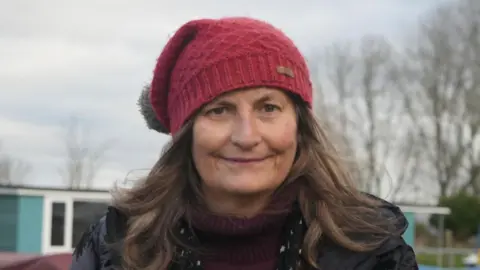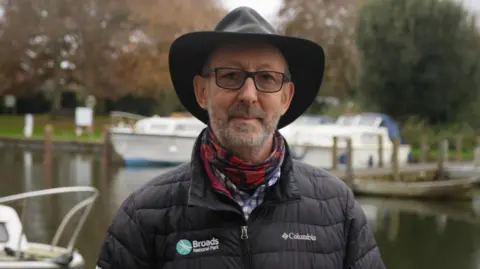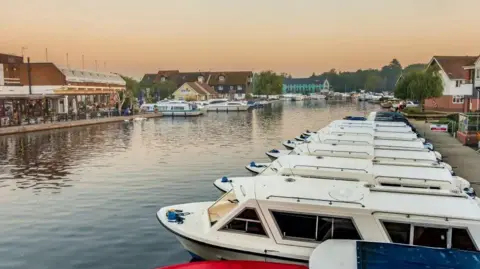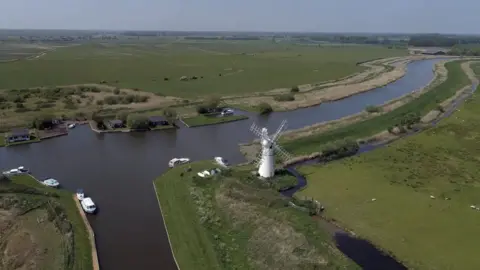Fear toll increases will see fewer boats on Broads
 Jamie Niblock/BBC
Jamie Niblock/BBCAn above-inflation increase in fees for boats using the Norfolk and Suffolk Broads would impact the tourism industry, leading to fewer vessels on the water and less income for the authority, a boatyard owner said.
Mary Sparrow of Hippersons boatyard, Beccles, Suffolk, said: "For the last few years, the tolls have gone up exponentially above inflation, higher than council tax and the impact on private boaters is significant. And the impact on tourism businesses is also significant."
The Broads Authority is putting up fees by an average of 5.9% for most craft from 2025.
Its chief executive, John Packman, said it had no choice as its own costs had risen.
 Jamie Niblock/BBC
Jamie Niblock/BBCDiesel and petrol hire boats would see the biggest increase of almost 10% but fees for sailing and electric boats would not rise.
The authority has forecast a £400,000 shortfall in its funds next year.
This is the third year running the Broads Authority has increased toll fees. Two years ago it went up by 13% and last year saw an 8.5% rise.
"We probably needed 10% if we were going to continue at the same level of service," said Mr Packman.
The lower increase would result in services being cut, such as fewer ranger patrols and dredging work reduced by a quarter.
He added the other inland navigation bodies such as the Environment Agency and and Canals and Rivers Trust were also increasing charges.
 Getty Images
Getty ImagesBut Ms Sparrow, who is also chair of the trade organisation Visit the Broads, said she was considering putting boats on the water for only five days a week to save money.
"People aren't happy that a lot of costs are being passed down to small businesses," she said.
"It's on the back of minimum wage increasing. It's on the back of National Insurance dropping.
"There has been fewer boats operating on the Broads. The income from the toll has dropped. So instead of thinking this isn't working, they've just increased the size of the toll per boat."
Mr Packman agreed boat numbers had fallen, but put this down to the poor summer weather and the cost of living, meaning fewer could afford to run a boat.
He said the authority had asked government to make them a special case and increase its grant, which had been cut over recent years, but so far had not had a response.
He said managing the man-made landscape was "expensive and it's always been known to be expensive".
A Department for Environment Food & Rural Affairs spokesperson said the government was investing £400m over two years towards protecting and restoring nature, including for national parks such as the Broads.
 Martin Barber/BBC
Martin Barber/BBCFollow Norfolk news on BBC Sounds, Facebook, Instagram and X.
